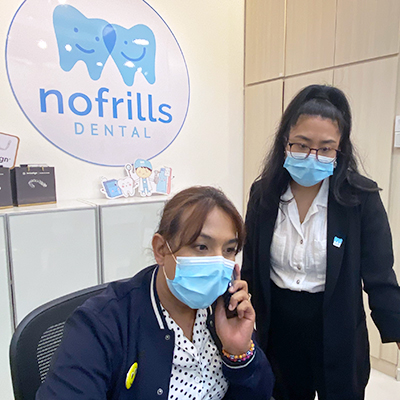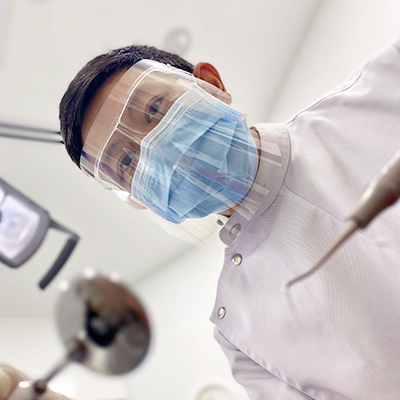Root Canal Treatment
Root Canal Treatment, or Endodontics, deals with the tooth pulp and tissues surrounding the root end of a tooth. Teeth root canals become infected when the blood or nerve supply of the tooth gets contaminated through decay or injury.
Unlike the rest of the body, the pulp is encased in the tooth and is unable to repair itself when irreversibly inflamed. Root canal treatment is required if the tooth gets inflamed and/or infected.
Why Root Canal Treatment
Every health tooth holds a pulp chamber which contains the nerves and blood vessels. The pulp serves to form the roots of the tooth during the development of a tooth. It also causes sensation to the tooth when exposed to extreme temperature and alarms us when there is decay. When the pulp becomes irreversibly inflamed and infected and starts to die, it can cause extreme toothache. Overtime, the infection can travel to the root to cause damage around the root structure.s inflamed and/or infected.
Benefits of Root Canal Treatment
Root canal treatment saves natural teeth that have sustained irreversible pulpal injury. It prevents or delays the need for teeth extraction. Occasionally, a tooth cannot be saved if the decay or trauma sustained to the tooth is too severe. Root canal treatment can be done only if the root canals are accessible and can be adequately cleaned and sealed. The tooth must also have sufficient bone support.
Treatment Process
The dentist will initially numb the tooth to be treated using local anaesthetic and isolate the treatment area using a rubber dam. The rubber dam prevents saliva contamination and accidental ingestion of root canal instruments and materials used during the procedure.
The infected nerve of the tooth will first be removed and any abscesses (pockets of pus), if present, will also be drained at this time. The root canal of the tooth is then cleaned and shaped, ready for a temporary filling. During the next visit, the tooth will be permanently filled if there is no signs of infection.
FAQs on Root Canal Treatment
1. How long will it take?
Root canal visits takes about 60 minutes on average and may require multiple visits, depending on the shape and number of canals present as well as the nature of your condition. Front teeth have the advantage of being in a more convenient location and usually have a single large ovoid canal whereas back teeth usually have multiple fine canals which are harder to access. Patients who present with chronic infection, resulting in damage to the surrounding tissues (e.g. sinus tract, cystic changes etc.) should expect a longer follow-up period with their attending dentist. Usually, root canal treatment can be completed in one or two sessions. However, more visits may be required depending on the complexity and severity of the disease.
2. How long will the tooth last after root canal treatment?
With proper restoration, stringent dental care and regular dental checkup, a root canal treatment can last a lifetime. After the completion of a root canal treatment, the dentist will usually advise the patient to go for crowning that can protect the tooth from future fracture.
3. Is the procedure painful?
Root canal treatment does not cause pain and instead relieves pain. When you suffer from a severe toothache, it is likely due to damaged tissues in the tooth. This procedure removes the damaged tissue from the tooth, thereby relieving the toothache. Before treatment, local anaesthetics will be administered to ensure no pain during the procedure.
4. Will there be pain after the root canal treatment?
Patients may feel tenderness after the procedure due to inflammation. Painkillers will be given to the patient to relieve the discomfort the treatment.
5. What is the success rate of root canal treatment?
Root canal treatment is a common and safe procedure and generally have up to 90% success rate. However, the treatment may fail if:
– The affected tooth develops decay again under the crown due to ineffective oral hygiene
– The tooth cracks due to failure to install a crown
– Severe gum disease develops
Dental Services
Book an Appointment!

CHAS & Medisave Accredited Clinics
NoFrills Dental clinics in Singapore participate in Merdeka Generation, Pioneer Generation, CHAS Card and Medisave programs.

Flexible Payment Options Available
Contact us to know more about the versatile & flexible payment options offered at NoFrills Dental clinics.

Opening Hours
Monday - Friday: 10am to 7pm
Saturday: 10am to 5pm
Sunday & Public Holiday: Closed

Book an Appointment
NoFrills Dental offers a wide variety of high-quality dental services. Talk to us to book your next dental appointment with us.

